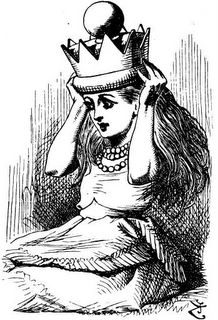Remembrance
Today was my grandmother's birthday. She would have been 84. Named 'Athena' by her Greek immigrant parents, she was known to everyone else as "Annie".
Annie was a curious mix of Old World superstition and New World optimism. The youngest of four children, and the third girl, she was given no particular status in her family. Her parents came to this country for its vast opportunities, but they remained forever suspicious of its technology and critical of its values. When Annie, who excelled at athletics, joined her high school girls' basketball team, she had to lie and sneak out to attend practice, because her parents disapproved of girls playing sports, and especially of the "revealing" uniforms (this was 1938 - I'll leave it to your imagination how revealing they were!). When a letter came home from the principal congratulating Annie on making the All-Star team, her parents were outraged. They didn't read English, but assumed that any official communication from school must be about a discipline problem. She was soundly beaten and kept in her room. When she finally made them understand that she was being honored, they relented and allowed her to play in the game. Her father attended (her mother still refused to condone anything so improper); when he saw the other parents cheering for their girls, finally, he understood and bragged about Annie. But he never mentioned it to her afterward.
Annie came of age as World War II began. She married young to escape an oppressive household (and probably to please her parents), and almost immediately had a child (my mother). Her husband turned out to be unreliable, however, and sometimes abusive, so she soon divorced him. A single mother, she went to work for Republic Steel in Canton, Ohio, as a crane operator. Once again, by embracing social change, she disappointed her parents. Why couldn't she be like her oldest sister, Mary, they asked? Mary had accomplished that most-desired goal: she had Married Well, a wealthy man who happened to be much older. But Annie was bright and capable, good at her job, and was the last of the women to be let go when the men returned after the war to reclaim "their" jobs.
Before she left the steel factory, she met John Kosmides, a dapper veteran who managed to charm her once-burned heart. He was five years younger, and it took some time and his considerable persuasive skill to gain her trust, but they married in 1947.
The Greeks have a great sense of tragedy, and Annie had a wide fatalistic streak. She wished for happiness, yet felt sure that it wouldn't last, and had a strong sense that the gods were always on the lookout to punish hubris. Her rich sister Mary died young, of multiple sclerosis. Her only brother, John, the family favorite, was born with an enlarged heart and died in his 20s. Helen was unhappy in her marriage and ended up raising four children alone. Annie and John were married 23 years when he dropped dead of a massive heart attack at the age of 44. She never did come to feel grateful for the 23 years, and that they at least had the chance to raise their children and see them established. She never moved past the keen sense of abandonment, and she never slept in their bed again. Oh, she went back to work - had to, to pay off the new mortgage they had just acquired six months before he died. And she mowed her lawn and continued to be active in her church, and took up tennis in her late 50s so she could play with us kids when we were in high school. But something was broken, irreparably. She would stay in that house and sleep on the couch for the next 32 years.
In 1974, Annie's father, who had undiagnosed Alzheimer's dementia, left his house to walk to the corner market and disappeared. He was never seen again. His skull was recovered several years later in the wild area of a local park; cause of death unclear. We speculated that he had gotten confused and attempted to return to the neighborhood where he had lived decades earlier. He may have died of exposure, or it may have been a homicide. The four years of uncertainty between his disappearance and the discovery of his remains drove his wife over the edge of reason, and of course it was Annie and her sister Helen who had to cope. Perhaps she should be forgiven for her fatalism. Annie herself eventually developed Alzheimer's disease. In 2002 we convinced her (coerced her) to move out of her home and into an assisted living facility. She hated it at first, but as her dementia progressed, she felt safe there.
So many of these events, the things I think of when I think about my grandmother's life, are just what life sends to each of us. Tolstoy wrote, "Happy families are all alike; every unhappy family is unhappy in its own way." Does that mean the details of unhappiness are really important? In my two years of weekly visits with Annie before she died, she certainly focused on them. Perhaps she was depressed - maybe she always had been. Perhaps her soul was doing its karmic work. Perhaps she had simply learned too well the early lessons that the universe is a fearful place and the gods not to be trusted.
As difficult as she was to be with sometimes, I miss her.





